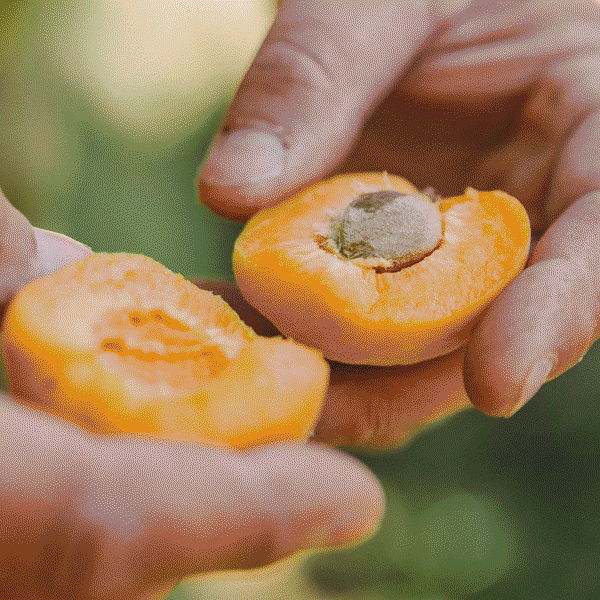
From the orchards of Washington to the fields of California, our farm partners are the roots of everything we do. They’re the ones waking up before sunrise, weathering every storm (literally), and finding smarter, more sustainable ways to grow the food we love.

For National Farmer’s Day, we’re shining the spotlight on a few of the innovative farming practices—and the incredible growers—helping us build a better food system. Because knowing where your food comes from makes it taste that much better.
What is Transitional Farming?
Transitional farming is the process of shifting from conventional to certified organic practices. In the U.S., farms must follow approved organic methods for 36 months before earning the USDA Organic label. During this time, growers avoid synthetic fertilizers, pesticides, GMOs, and keep detailed records. Why does it matter? Transitional farming helps more farmers move away from synthetic inputs and toward a more sustainable future. At Misfits Market, we’re proud to support growers in this stage—and when you see transitional produce, you’re helping them make that leap.
What is Regenerative Farming?
Regenerative farming, also known as regenerative agriculture, is a method of growing food that goes beyond sustainability. Instead of just maintaining the status quo, it seeks to restore and replenish the land, improving soil health, biodiversity, and the surrounding ecosystem with every growing cycle. At its core, regenerative agriculture focuses on working with nature—not against it. It includes practices like cover cropping, minimal tillage, and integrating livestock to naturally fertilize the land.
What is Hydroponic Farming?
Simply put, it’s a method of growing plants without soil. Instead, crops grow in nutrient-rich water, often inside controlled environments like greenhouses or indoor facilities. Hydroponic farming allows for year-round harvests, more efficient resource use, and produce that’s just as crisp and delicious as what you’d find from a traditional farm.
What is Vertical Farming?
Vertical farming is exactly what it sounds like—growing food in stacked layers, often in controlled indoor environments that use hydroponic or aeroponic systems instead of soil. While the process looks different from traditional farming, the goal is the same: grow nutritious, delicious food. By growing upward instead of outward, vertical farms use a fraction of the land and up to 95% less water than conventional farms. Because they’re not dependent on weather or seasons, they can produce fresh crops year-round with fewer pesticides and far less waste.
A Few of Our Farm Partners
Homegrown Organics
A longtime partner that takes a holistic approach to farming, Homegrown Organics has a “Grown With Care” philosophy that extends to how they treat the environment, their workers, and, of course, their delicious fruit. Items we sell from Homegrown Organics are favorites like organic kiwi berries, organic pomegranates, organic hachiya persimmons, and blueberries.
Niman Ranch
Niman Ranch makes it easy to support better practices, with a network of small family farmers and ranchers raising animals humanely and sustainably. All of the farms are Certified Humane, and are committed to never using any antibiotics or hormones. Items we love from Niman Ranch are the Bacon Ends & Pieces, their Lamb Loin Chop, and the juicy and tender Iberian Duroc Pork Chops.
Nature Fresh Farms®
Nature Fresh Farms® brings you greenhouse-grown peppers, tomatoes, and cucumbers—all grown without pesticides, pollinated by 6,000 bumblebees (!), and picked at peak ripeness. A few delicious finds from them are the Mystery Cherry on the Vine Tomatoes, Sweet S’NAPS Peppers, and mini seedless cucumbers.
Creekside Organics
Located in California’s Central Valley, Creekside transitioned to organic eight years ago, and now grows delicious citrus varieties like mandarins, naval oranges, and Cara Caras.
Lundberg Family Farms
Guided by the founding philosophy to “leave the land better than you found it,” this family-owned farm has been growing high-quality, organic rice using regenerative practices for generations.
Supporting Farmers Starts Here
When you shop with Misfits Market, you’re supporting thousands of farmers—small, large, organic, transitioning, and everything in between. We work directly with growers to help them find a home for more of their harvest, reduce waste, and keep their farms thriving in a changing industry. Every box you order helps move this mission forward.
Want to learn more? Visit our Food Waste Hub for even more ways to eat sustainably and reduce your impact.
